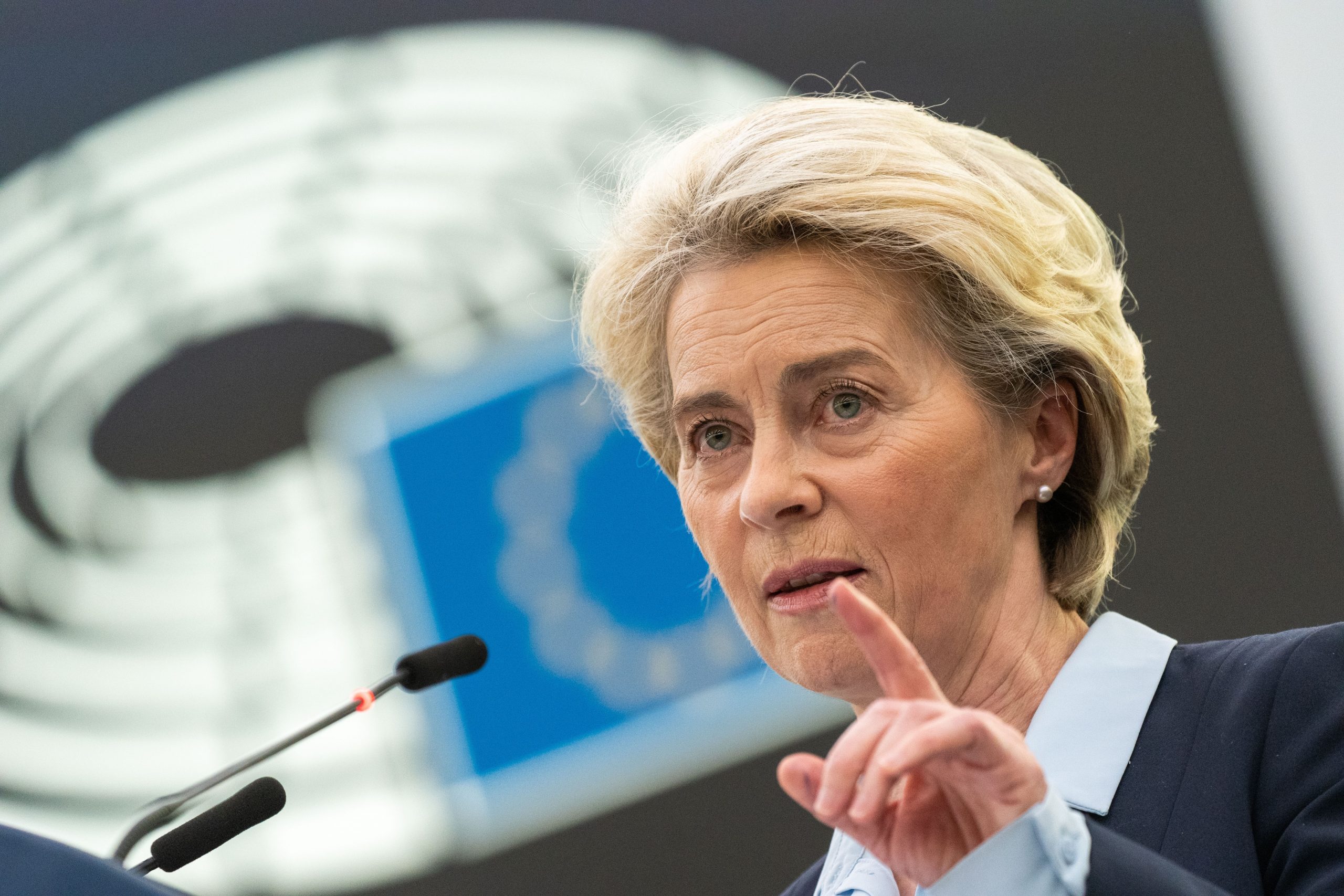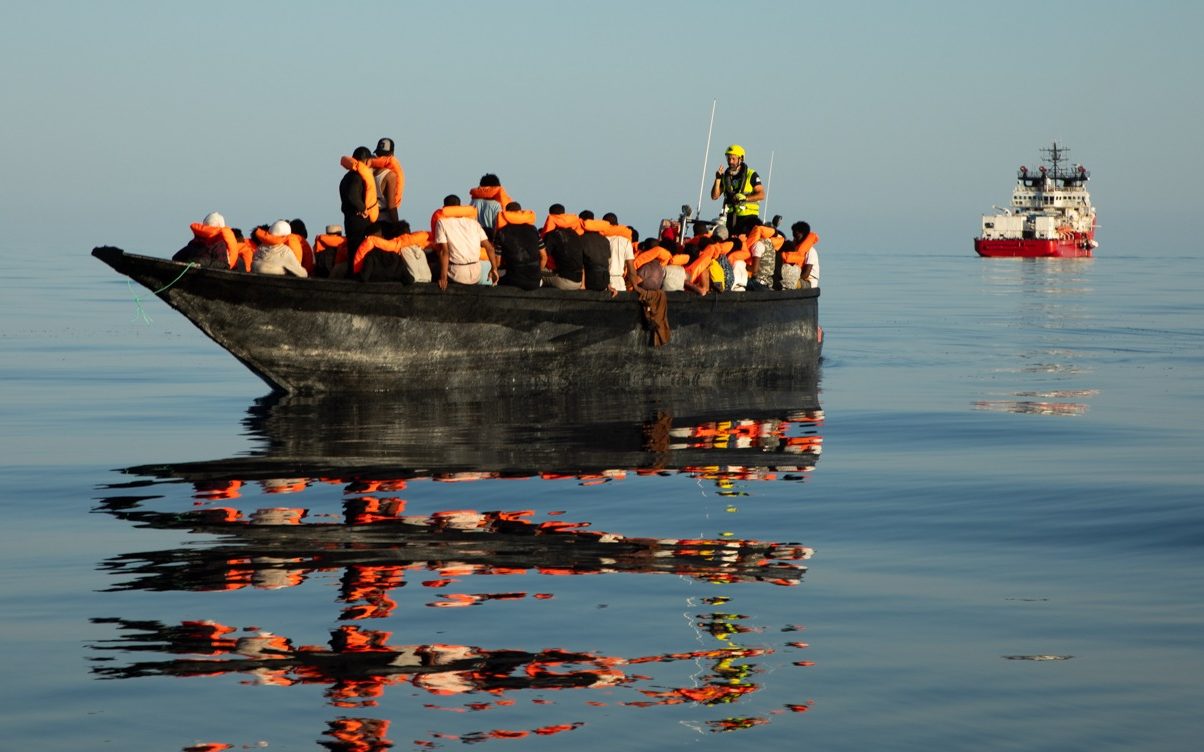
Viktor Orbán and the international press have doubts about the effectiveness of sanctions.Continue reading

According to a recent article in the German Handelsblatt newspaper reflecting on a Thursday vote by EU home affairs ministers in Luxemburg, the European asylum system is being “radically tightened”. This interpretation, however, is strongly disputed by governments of two member-states, Hungary and Poland, who have voted against the proposal.
German Interior Minister Nancy Faeser (SPD) expressed relief and thanked her colleagues for what she called “historic decision.” What she did not mention was that the vote, only announced 20 minutes before it actually took place, is a back-door circumvention of member-states’ traditional right to veto.

Facebook: Nancy Faeser
The German newspaper calls the result of the vote a “reform” aimed at establishing a functioning European asylum system. The Handelsblatt article also states that on the one hand, the “reform is intended to reduce the number of refugees throughout Europe and, on the other, to better distribute the burden among EU states”.
In truth though, the deal is not meant to reduce the number of refugees arriving in Europe, but that of illegal migrants, a distinction German media are still struggling to make. Furthermore, the article fails to ask the glaringly obvious question, as why should the bloc’s main effort be focused on simply “distributing” the ever-increasing burden of illegal migrants be, instead on reducing this burden altogether. As it stands, the message it sends out is that the bloc has given up on stopping the record number of illegal economic migrants arriving on the continent, and the solution it champions is to spread the pain evenly.
The EU’s own study regarding the migrant quotas, conducted by the European Court of Auditors (ECA), had shown that migrant quotas, instead of serving as a deterrent and reducing the number of illegal arrivals, serve as a pull factor and are entirely countrer-productive. The ECA research also showed that of half a million illegal migrants who have been ordered to leave the EU since 2008, only 29% were finally deported. However, only 19% who entered from outside continental Europe have been sent back, in other words, over 4/5 of third-world migrants who enter the EU illegally are beating the system. A system with a 81 percent failure rate is bordering chaos by any measures.
The Handelsblatt article continues by explaining that although there is to be no forced distribution of refugees within Europe, no state should be able to escape the new solidarity mechanism: those that do not want to take in refugees must instead make a compensation payment to help the Mediterranean states. The fact that the concept of solidarity is wholly incompatible with the idea of a “mechanism” and that “escaping solidarity” is a complete oxymoron, does not seem to trouble the author of the article either. So does the conclusion, that the one above is a proposal that will force hundreds of thousands of people, who have in most cases entered the European Union illegally, on less wealthy member-states whose populations are fundamentally opposed to opening their borders, economies and welfare system to economic migrants.
The Handelsblatt article also quotes Minister Faeser as saying that if decision was not reached, there was a threat of a return of national border controls, which in turn would put the Schengen area “in danger”. The complete lack of introspection and the ability of critically examining the failures of Europe’s immigration and border protection system is clearly tangible in this statement, as the border checks across Europe are only a symptom of the EU’s own impotence in dealing with the free-flow of illegal border crossers. Nation-states have been forced to reinstate border controls and build barriers at great expense precisely because of Brussels’ unwillingness at stopping the Mediterranean migrant crisis. The newly erected border-checks are only a symptom, a localized reaction to a crisis not only ignored, but actively fostered by a pro-migration European political majority.
The newspaper article also points out that at the meeting Poland’s Deputy Interior Minister Bartosz Grodecki complained about his country being “punished” financially if it did not take in refugees from the Mediterranean, even if they had just taken in a million refugees from Ukraine. Grodecki also pointed out that a decision of such magnitude should not have been decided by a simple qualified majority but unanimously, and that by heads of government.
As the Handelsblatt article elegantly points out, “the no votes of Poland and Hungary had been expected. Nor did their votes matter though, because as long as no other large member state joined the opponents, they could simply be outvoted”. This is indeed the case, that Hungary and Poland’s votes are just as effortlessly ignored as their concerns have been for years. To make matters worse, the problem is not simply that in Poland and Hungary the public opinion is against mass migration, while in the West it is not. The difference is that Polish and Hungarian politicians do follow public sentiment on migration, while Western politicians ignore it by and large.

Photo: Facebook SOS MEDITERRANEE France
In Faeser’s Germany, for instance, the majority of the citizens is against taking in more refugees and migrants, and 54 percent think that the overall effects of migration are negative, rather than beneficial. Only 33 percent think that it is positive. As to distributing migrants across the EU, that is, migrant quotas, 79 percent of Germans believe that asylum procedures should be conducted outside the EU. Furthermore, 77 percent of Germans think that their politicians pay far too little attention to the problems caused by migration.
Journalism that does not point out the elephant in the room, here namely that the EU’s top politicians are acting against the express will of their citizens, but also ridicules those governments that do, is entirely symptomatic of Western mainstream media. It is a distraction from the fact that the compulsory solidarity deal is an invitation to those who want to better their lives without any regard to the consequences of their presence on their unwilling host societies, and a de facto amnesty for those who have already settled through exploiting the broken system.
Features Image: SOS MEDITERRANEE France